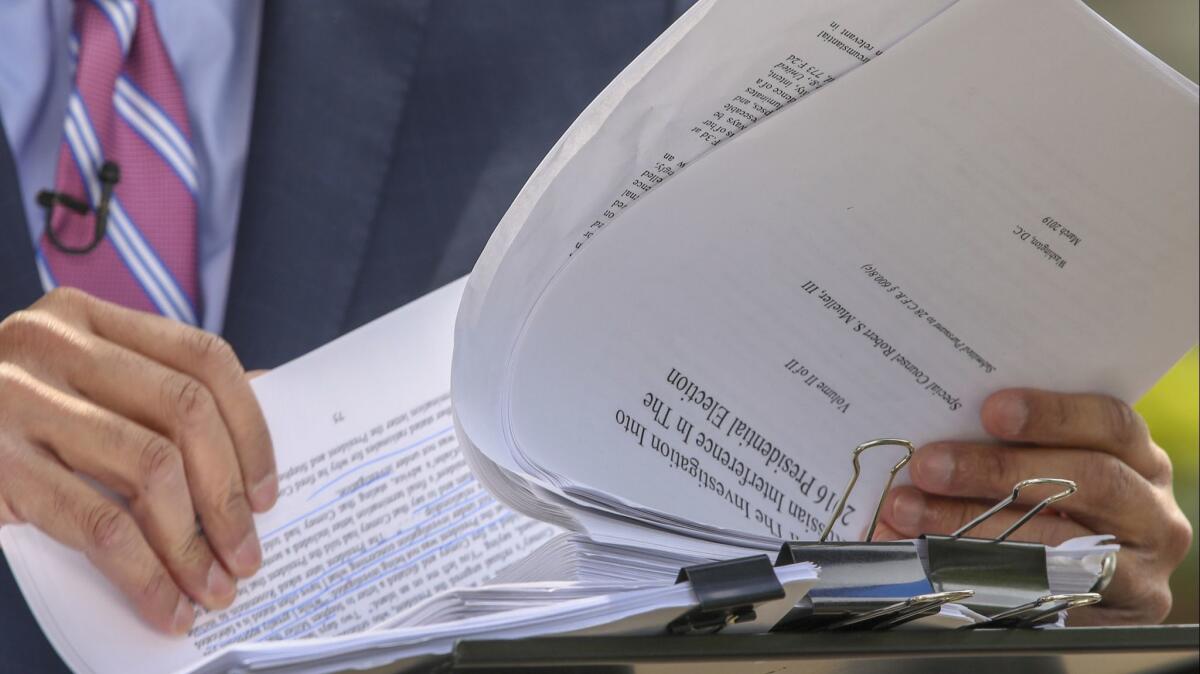Neither Trump nor his critics are challenging Mueller’s findings — yet

- Share via
For the rest of today and possibly many days to come, politicians and pundits are going to argue over the significance of what special counsel Robert S. Mueller III concluded after a two-year investigation into Russian meddling in the 2016 presidential election.
But thanks to Mueller’s voluminous findings, we finally have something that’s long been missing from the debate over the special counsel’s probe: A common set of facts.
That’s a rare and precious thing these days. Our society is so polarized politically, we can’t make progress on such major issues as climate change, immigration policy and healthcare reform because Republicans and Democrats can’t agree on the facts in front of them.
Now, when Trump claims that the report found “[n]o collusion — no obstruction,” no one has to take his word for it. They can look at what Mueller says. They can get past the spin on both sides and consult an honest broker.
My colleagues and I on the Los Angeles Times’ editorial board offer our own summary of Mueller’s findings, and it’s not so favorable to the president. Countless other journalists are doing the same, alongside politicians and interest groups of all stripes.
Enter the Fray: First takes on the news of the minute »
For the time being, no one seems to be attacking the validity of Mueller’s work. After trying relentlessly for almost two years to discredit the special counsel, Trump and his supporters have embraced the report and turned their fire on the officials responsible for the investigation that led to Mueller’s appointment. Other Republicans, most notably Atty. Gen. William Barr, have sought to warp the public’s understanding of Mueller’s findings without attacking Mueller’s credibility.
For example, Barr said “the special counsel’s report did not find that any person associated with the Trump campaign illegally participated in the dissemination” of hacked Democratic emails, eliding Mueller’s finding that people in and around the Trump campaign had sought to encourage WikiLeaks to release emails that would be helpful to Trump — which it did.
That’s how the political battle over Mueller’s report will play out in the near term, with Trump’s supporters and critics offering dueling interpretations of the more than 400 pages of findings.
It’s reasonable to expect that it’s a battle that will change exactly zero minds in this country. But the moment either side starts arguing that the Mueller report itself was flawed, biased or corrupt, that’s when you’ll know that public sentiment has moved in the other side’s direction.
More to Read
A cure for the common opinion
Get thought-provoking perspectives with our weekly newsletter.
You may occasionally receive promotional content from the Los Angeles Times.











